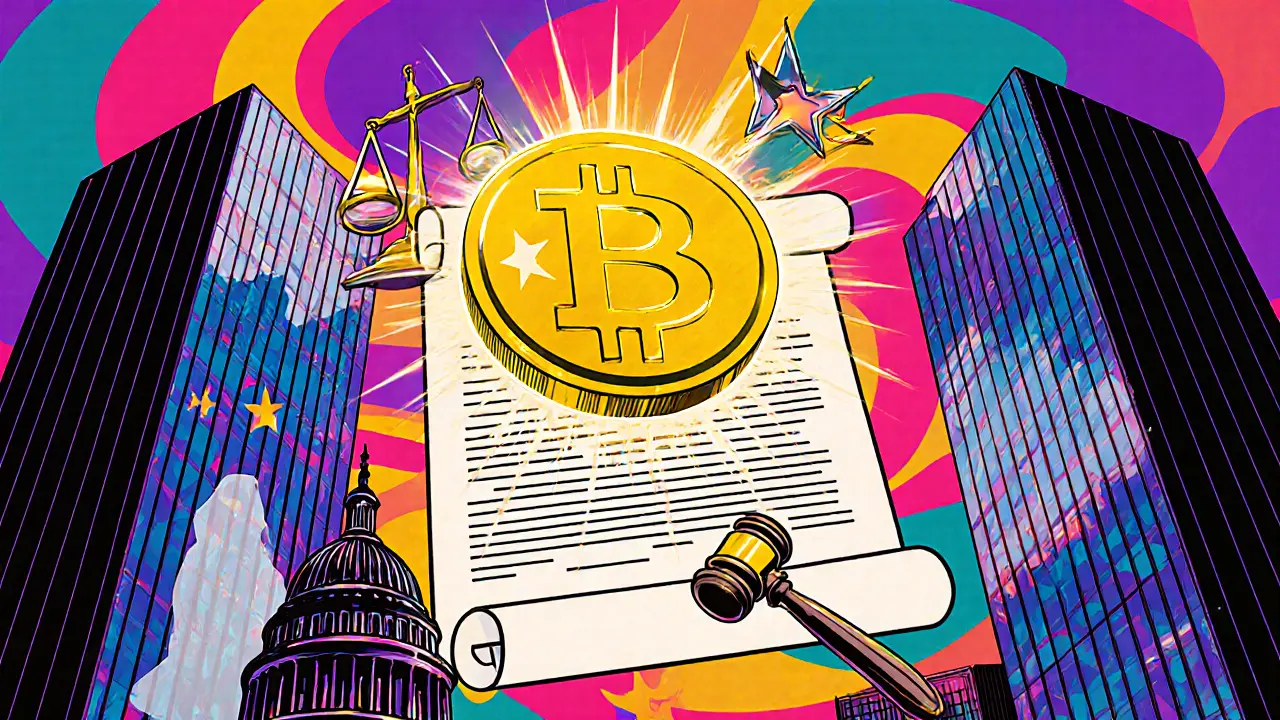NFT Regulation – What You Need to Know
When dealing with NFT regulation, the set of rules that govern creation, sale, and use of non‑fungible tokens. Also known as digital asset compliance, it helps protect buyers, creators, and platforms from fraud and legal risk. NFT regulation is becoming a hot topic as governments catch up with fast‑moving markets.
In Europe, MiCAR, the EU’s Markets in Crypto‑Assets Regulation that sets standards for token offerings and trading platforms plays a pivotal role. MiCAR influences NFT regulation by defining what qualifies as a security‑like token and by imposing disclosure duties on issuers. Meanwhile, the United States leans on the SEC, the Securities and Exchange Commission that enforces securities laws on digital assets. The SEC’s guidance shapes NFT regulation through enforcement actions that treat certain NFTs as securities when they promise profits from the efforts of others. Together, these frameworks create a cross‑border compliance puzzle that creators and marketplaces must solve.
Practical Compliance Pieces
Beyond high‑level frameworks, day‑to‑day NFT projects face concrete requirements. Anti‑Money‑Laundering (AML) rules demand that platforms verify user identities and monitor suspicious transactions, a step that directly ties into NFT regulation. When an NFT airdrop is planned, the event falls under the same umbrella. NFT airdrop, a distribution method where free tokens are sent to eligible wallets, often for marketing or community‑building purposes must adhere to AML checks, tax reporting, and consumer‑protection standards. Ignoring these can trigger fines or halt the distribution altogether.
Regulators also look at how NFTs are marketed. Disclosure of risks, clear ownership rights, and royalty structures are now expected parts of any NFT sale agreement. This expectation stems from the principle that NFT regulation requires transparent information to avoid misleading investors. Platforms that embed smart‑contract checks for royalty enforcement are better positioned to meet these disclosure duties, while also offering creators a reliable revenue stream.
For developers, the takeaway is simple: treat NFTs like any other financial product. Conduct thorough KYC/AML checks, set up robust smart‑contract audits, and stay updated on jurisdiction‑specific rules such as MiCAR in the EU or SEC guidance in the US. By embedding compliance into the design phase, you avoid costly retrofits later.
Below you’ll find a curated list of articles that dive deeper into each of these angles— from EU‑wide MiCAR analysis to real‑world NFT airdrop case studies and practical AML checklists. Use them to build a compliance‑first strategy that keeps your projects safe and your community confident.
Real Estate NFT Regulations: Key Challenges and How to Navigate Them
Explore the biggest regulatory hurdles facing real estate NFTs, see how different countries treat tokenized property, and get a checklist to stay compliant and invest safely.
